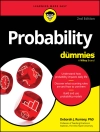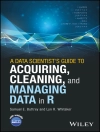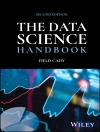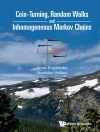This book presents an up-to-date perspective on randomized response techniques (RRT). It discusses the most appropriate and efficient procedures of RRT for analysing data from queries dealing with sensitive and confidential issues, including the treatment of infinite and finite population setups. The book aims to spark a renewed interest among sampling experts who may have overlooked RRT. By addressing the missing topics and incorporating a wide range of contributors’ works, it seeks to foster an appreciative academic environment and inspire a reformed and amended view of RRT. As the book unfolds, readers will gain valuable insights into the evolving landscape of RRT and its applications, positioning them at the forefront of this engaging field of study.
On RRT, the literature has grown immensely since its inception in 1965 by S.L. Warner. Despite several books published on the subject, there are still two crucial topics missing from the existing RRT literature. This book aimsto address these gaps and provide valuable insights to curious readers in the field. The book is mandatory reading for statisticians and biostatisticians, market researchers, operations researchers, pollsters, sociologists, political scientists, economists and advanced undergraduate and graduate students in these areas.
Содержание
Genesis, background and the need for Randomized Response Techniques (RRT).- Reviews of background material on RRT.- How to use Randomized Response survey data obtained by a specific procedure to judge its efficiency relative to a possible rival.- Fixing the size of a varying probability sample in a Direct and a Randomized Response survey.- Likelihood approach and its ramifications.- Optional Randomized Response Technique (ORRT).- Protection of Privacy.- Variation from classical data generating procedures by repeated drawing.- Other Topics beyond Chaudhuri (2011) and Chaudhuri and Christofides (2013).- Topics covered in the literature subsequent to Chaudhuri (2011).- Alternatives to RRT in studying sensitive and stigmatizing issues.- An epilogue.
Об авторе
Arijit Chaudhuri is Honorary Visiting Professor at the Applied Statistics Unit at the Indian Statistical Institute (ISI), Kolkata, India, since 1st September 2005. Professor Chaudhuri holds a Ph.D. in Statistics in the area of sample surveys from the University of Calcutta, Kolkata, India, from where he also graduated. He worked as a postdoctoral researcher for two years at the University of Sydney (1973–1975), Australia. He retired as a professor from the ISI, Kolkata, India, on 31st August 2002, where he then continued to work as the CSIR Emeritus Scientist for three years up to 31st August 2005. His areas of research include mean square error estimation in multi-stage sampling, analytical study of complex surveys, randomized response surveys and small area estimation. In 2000, he was elected as the President of the Section of Statistics for the Indian Science Congress and worked for the Government of West Bengal for 12 years as the Committee Chairman for the improvement of crop statistics. He has also worked with the Government of India to apply sophisticated methods of small area estimation in improving state and union territory level estimates of various parameters of national importance. He has worked on various global assignments upon invitation, including visiting professorships at several universities and statistical offices in the USA, Canada, England, Germany, the Netherlands, Sweden, Israel, Cyprus, Turkey, Cuba and South Africa, from 1979–2009. He has successfully mentored 10 Ph.D. students and published more than 150 research papers in peer-reviewed journals, a few of them jointly with his students and colleagues. He is the author of 11 books on survey sampling.
Sanghamitra Pal is Assistant Professor at the Department of Statistics, West Bengal State University (WBSU), India, since 2009. She has completed her Ph.D. in Statistics from the Indian Statistical Institute (ISI), Kolkata, in 2004. Earlier, she servedas a research scientist from 2001–2009 at River Research Institute (RRI), the Government of West Bengal, India. She also worked as Research Associate and a Visiting Scientist at the Applied Statistics Unit, ISI, Kolkata, from January 2005 – July 2006. She is guiding two Ph.D. students in the area of sample surveys at WBSU and has published research articles in several reputed journals. She organized an invited session on adaptive cluster sampling at the International Statistical Institute Conference in Durban, South Africa (2009); a sample survey session at the Indian Science Congress (2012); and presented papers at international conferences in South Africa, New Zealand, Germany, France, Thailand, Singapore, as well as India. She was involved in the professional attachment training (PAT) program of sample survey with ICAR-NAARM, Hyderabad, India. Besides teaching and research, Dr. Pal is working as a nodal officer for the All India Survey of Higher Education cell of WBSU.
Dipika Patra is Faculty at Seth Anandram Jaipuria College, Kolkata, West Bengal, India, since August 2014. Moreover, she is involved in postgraduate teaching at the Department of Statistics, West Bengal State University (WBSU), Barasat, India. She earned her Ph.D. in Statistics from WBSU, in 2022. She has more than 10 publications in peer-reviewed journals: Metron and Communications in Statistics: Simulation and Computation and Statistics in Transition. She ranked third in the Bose–Nandi award from Calcutta Statistical Association, in 2019.












